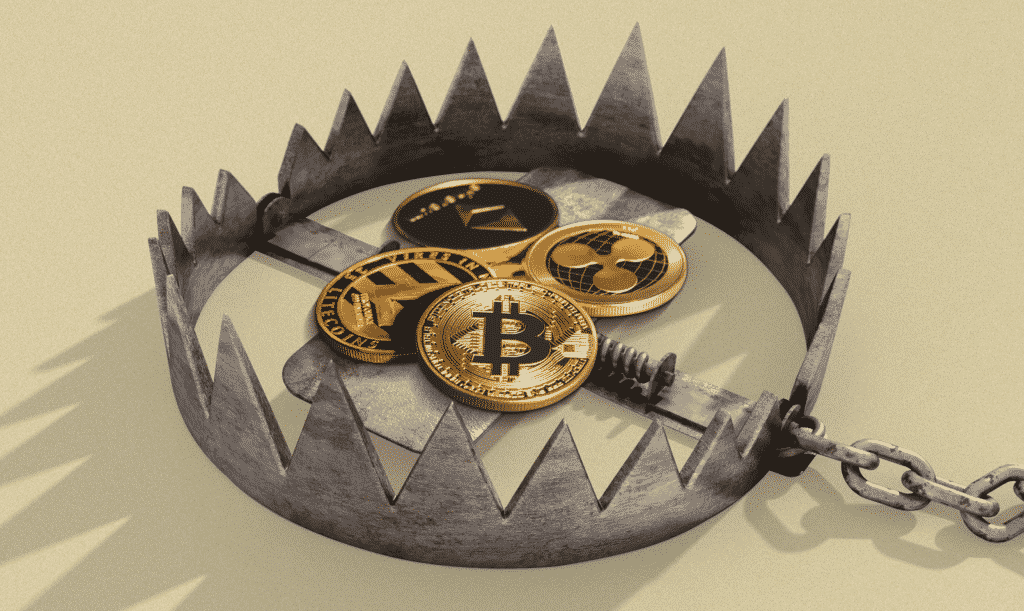Cryptocurrency enthusiasts are always looking for new ways to buy, sell, and exchange their coins as efficiently as possible. PancakeSwap is one of the most popular methods to do so today. It’s a decentralized exchange on the Binance Smart Chain that allows users to buy and sell a wide range of cryptocurrencies and tokens. However, it’s also become the target for a variety of cryptocurrency scams.
Scammers Promise Free Giveaways
Like many other decentralized exchanges, PancakeSwap has its own token that is used as an intermediary and source of liquidity in exchanges. The CAKE token is the 46th largest cryptocurrency in the world, with a market cap of over $1.1 billion. Scammers have been offering free CAKE in an attempt to get victims to follow malicious links that steal their crypto wallets.
Many of these schemes make use of a trend called airdrops. Airdrops are commonplace across crypto projects of all kinds. Developers or other parties will simply send out free cryptocurrency in an attempt to raise interest and draw crypto enthusiasts towards their projects. There are many legitimate examples of airdrops out there, but they are also used as effective bait by scammers.
In the case of the PancakeSwap scam, fake social media profiles are used to spread malicious links. These are incredibly common on Twitter, Facebook, and other platforms. The scammers make a simple post offering a giveaway of some specific amount of CAKE, sometimes hundreds of dollars worth.
They provide a link that supposedly leads to a website where they can link their wallet to receive the gift. However, it actually goes to a spoofed website that takes control of the victim’s wallet and drains any cryptocurrencies or tokens that it holds. The fake websites are often made to look exactly like the real PancakeSwap website, even featuring a URL that’s only a letter or two off from the real thing.
What seems like a great stroke of luck catching an active airdrop quickly turns into serious potential losses for victims. They can lose everything in their cryptocurrency wallet, which could be many thousands. These scams are so common that most people should simply avoid any such offers if they aren’t confident that they can verify whether or not it’s a scam.
Money Doubling PancakeSwap Scam
Another common PancakeSwap scam is money doubling. This practice is widespread across many other types of cryptocurrencies as well, and even regular money as well. The scammers make a post stating that anyone who sends a certain amount of CAKE or other cryptocurrencies to a specific wallet will have that money returned doubled. However, they simply keep the money they receive and send nothing back.
In some cases, these posts will claim to have inside technical knowledge, allowing them to exploit a glitch. This is almost always the case when this type of scam targets regular money, claiming to have found a glitch in Venmo, PayPal, or other payment processors. With cryptocurrencies, they can also simply claim to be a generous and wealthy crypto enthusiast who wishes to share their good fortune.
This is another scam where impersonating celebrities or organizations is common. The fake accounts will feature rich celebrities or high-profile crypto companies. To unwary victims, this can make it seem more reasonable that the profile is simply handing out money.
In any case, the result is the same. The post spreads through social media, and victims simply send their cryptocurrencies or cash to the scammers and receive nothing in return.
Avoiding PancakeSwap Scams
To avoid any PancakeSwap scams, the best course forward is to always go directly to the PancakeSwap website instead of following links found in social media posts. If the offer they’re making is legitimate, then it can be found through their website. These types of scams almost always revolve around directing victims to fake websites, so avoiding them is as simple as not following those links.
Similar to other get-rich-quick schemes like Immediate Edge UK which was recently exposed, crypto enthusiasts should generally be wary of any kind of giveaway offer. While giveaways do happen, scams are much more common. Cryptocurrency users shouldn’t link their wallets to websites they cannot trust and should only do so with established and reputable cryptocurrency exchanges. Taking just a little extra time to verify websites could prevent disaster.
